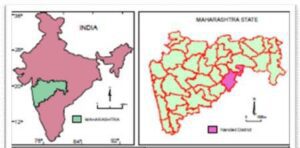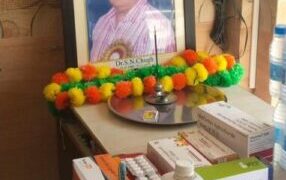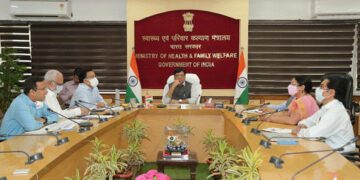By Health In Five Writer
Bhosi, a village of 6,000 people in the Bhokar Taluka of Nanded district in Maharashtra has showed the way of fighting the Covid-19 pandemic by simply adopting the path of isolation. Fresh challenges are being posed with the second wave of Covid 19 pandemic spreading to rural areas. Preventing the spread of Covid 19 in rural is a relatively complicated process due to the lack of testing facilities and health infrastructure, as compared to urban areas. Breaking the Chain of Covid 19 infection, Bhosi village adopted the magic rule of testing and isolating.

Two months ago, after a wedding ceremony, a girl of the village was found infected with Corona virus. Five more patients were found the following week, which led to a commotion in the whole village.
At this time, the Zilla Parishad Member Prakash Deshmukh Bhosikar took the initiative to organize a health camp in the village in coordination with the Gram Panchayat and the Health Department to conduct Covid tests. Rapid Antigen Test and RT-PCR tests that followed revealed that 119 people were Covid 19 positive.
It was decided to isolate the patients to break the chain of Covid 19 spreading to others. Accordingly, all the infected people were persuaded to go and live on their fields for a period of 15-17 days, as mandated by the guidelines of Ministry of Health and Family Welfare for people with mild infections. Farm labourers and others who did not own farms, were accommodated in a make shift 40’ x 60’ shed on Bhosikar’s own farm.
Ashatai, the village health worker and Anganwadi sevika would visit the fields everyday and interact with patients. Food and medicines were also provided on the spot. Nearly, everyone cooperated. After 15 to 20 days of isolation, the villagers returned home as corona-free persons only after a health check-up.
Bhosikar says “a month and a half has passed since then and no new patient has been found in the village. Covid can be fought effectively by adopting the age-old path of isolation – as was being done during the days of plague – even in villages without adequate health facilities”.

“Separation is the only way to save the villagers from getting infected” says Lakshmibai Akkemwad, who spent a fortnight in quarantine on the fields.
Nanded Zilla Parishad CEO Varsha Thakur Ghuge said that the Bhosi pattern is a good example of joint coordination between the villagers, people’s representatives and the administration, worthy of implementation in other villages of the district and elsewhere.
Follow Health In Five on LinkedIn, Facebook, Twitter & Instagram
Subscribe on WhatsApp & Telegram to receive real time updates










































